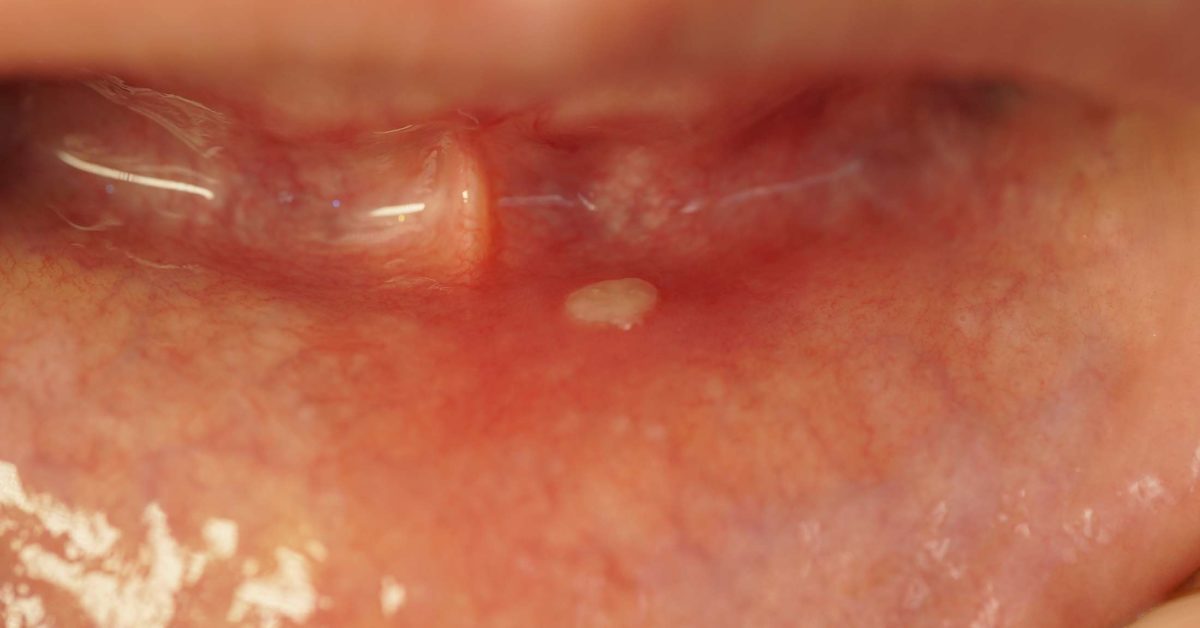"Dishing the Details: Decoding the White Stuff in a Canker Sore"
Explore the reasons behind the white substance in a canker sore, its scientific explanation, its significance, and related symptoms and treatments.

One of the most common oral health issues many people encounter is the canker sore. Anyone who has experienced one knows the discomfort they can cause. Not to be confused with cold sores, which are caused by the herpes virus and often occur outside the mouth, canker sores are typically found inside the mouth. They can appear on the tongue, the insides of the cheeks, and even on the gums. They are small, shallow, and often painful sores that can make eating and talking uncomfortable. But what exactly is that white stuff you often see in a canker sore?
The white substance you see in a canker sore is a protective layer covering the ulcer, which is the actual sore. This layer is primarily composed of fibrin, a protein involved in the clotting of blood. When a canker sore forms, your body reacts to the damage in the tissue by initiating the healing process. This involves the formation of a blood clot, which includes fibrin to protect the area, and the white layer is a result of this protection. This is similar to what happens when you cut yourself and a scab forms to protect and heal the wound.
It's important to note that while the presence of this white stuff can make a canker sore look more severe, it's actually a good sign. It means that your body is doing what it should to heal the sore. However, if you notice that your canker sore is growing, or the white layer seems to be spreading or getting thicker, this could be a sign of an infection and you should seek medical attention.
Canker sores can be caused by a variety of factors. Stress, minor injuries to the mouth, acidic or spicy foods, vitamin deficiencies, hormonal changes, allergies, and certain diseases can all contribute to the development of canker sores. Most canker sores heal on their own within one to two weeks. However, if you have a particularly large or painful canker sore, or if they are recurring frequently, it's best to see a healthcare professional. They can provide treatment options and can help determine if there are underlying issues that need to be addressed.
It's also crucial to maintain good oral hygiene to prevent canker sores and other oral health problems. Regular brushing and flossing, using a soft-bristled toothbrush, and avoiding foods that can irritate your mouth can all help. Additionally, if you're experiencing frequent canker sores, you may want to consider making changes to your diet or lifestyle to decrease stress and ensure you're getting the right nutrients.
In conclusion, while the sight of the white stuff in a canker sore may be worrying, don't be alarmed. It's a normal part of the healing process and typically isn't a cause for concern. But as with any health issue, if the condition doesn't improve or worsens, be sure to consult with a healthcare professional to get the proper treatment and advice.



